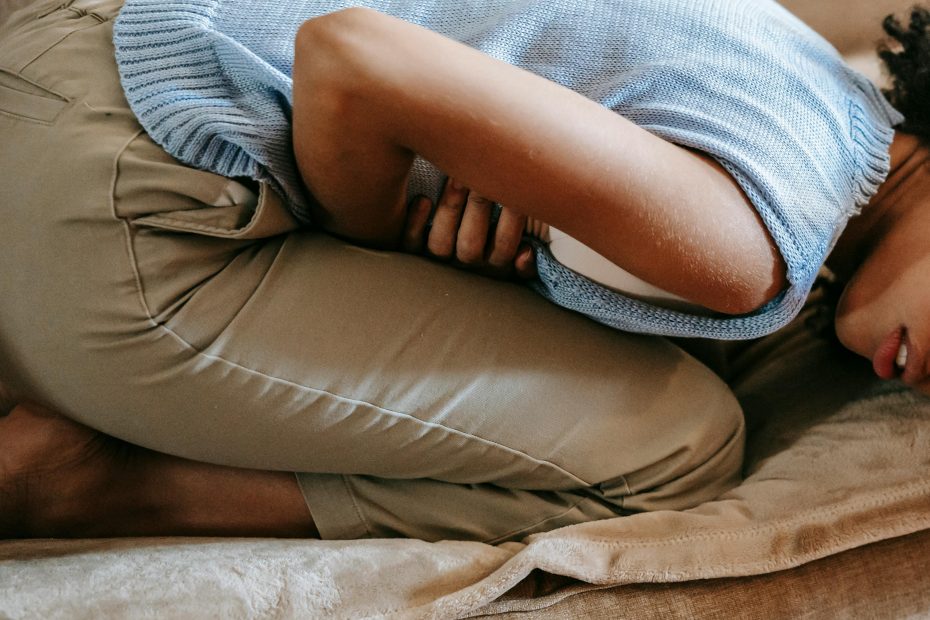Introduction
Menstrual cramps, also known as dysmenorrhea, are a common issue for many women during their menstrual cycle. These cramps can range from mild discomfort to severe pain, often interfering with daily activities. While over-the-counter pain relievers are a popular solution, many women prefer natural remedies to avoid potential side effects. In this article, we’ll explore 15 natural ways to relieve menstrual cramps, backed by science and traditional practices.
1. Understanding Menstrual Cramps
Before diving into remedies, it’s important to understand why menstrual cramps occur. During menstruation, the uterus contracts to shed its lining, triggered by hormone-like substances called prostaglandins. Higher levels of prostaglandins are associated with more severe cramps. Factors like stress, diet, and lifestyle can also influence the intensity of cramps.
2. Heat Therapy
One of the simplest and most effective ways to relieve menstrual cramps is by applying heat. A heating pad or hot water bottle placed on your lower abdomen can help relax the uterine muscles and improve blood flow. Studies show that heat therapy can be as effective as over-the-counter painkillers for some women.
3. Stay Hydrated
Dehydration can worsen menstrual cramps. Drinking plenty of water helps reduce bloating and ease discomfort. Herbal teas like chamomile or ginger tea can also provide additional relief due to their anti-inflammatory properties.
4. Exercise Regularly
While it may seem counterintuitive, light exercise can help alleviate menstrual cramps. Activities like yoga, walking, or stretching increase blood circulation and release endorphins, the body’s natural painkillers. Specific yoga poses, such as child’s pose or cat-cow stretch, are particularly beneficial.
5. Dietary Changes
What you eat can significantly impact menstrual cramps. Incorporate anti-inflammatory foods like leafy greens, nuts, seeds, and fatty fish into your diet. Avoid processed foods, caffeine, and sugary snacks, as they can exacerbate inflammation and bloating.
6. Magnesium-Rich Foods
Magnesium helps relax muscles and reduce cramping. Foods like spinach, almonds, avocados, and dark chocolate are excellent sources of magnesium. You can also consider a magnesium supplement after consulting with your healthcare provider.
7. Essential Oils
Aromatherapy with essential oils like lavender, clary sage, or peppermint can provide relief from menstrual cramps. Dilute a few drops of oil with a carrier oil and massage it onto your lower abdomen or add it to a warm bath for a soothing experience.
8. Herbal Remedies
Certain herbs have been used for centuries to relieve menstrual cramps. Examples include:
- Ginger: Known for its anti-inflammatory properties, ginger tea can reduce pain and bloating.
- Cinnamon: This spice helps regulate menstrual flow and reduce cramping.
- Fennel: Fennel seeds can relax uterine muscles and alleviate pain.
9. Acupressure and Acupuncture
Acupressure involves applying pressure to specific points on the body to relieve pain. The “Sanyinjiao” point, located above the ankle, is particularly effective for menstrual cramps. Acupuncture, a traditional Chinese medicine practice, has also been shown to reduce cramp severity.
10. Omega-3 Fatty Acids
Omega-3 fatty acids, found in fish oil, flaxseeds, and walnuts, have anti-inflammatory properties that can help reduce menstrual pain. Consider adding these foods to your diet or taking a high-quality omega-3 supplement.
11. Stay Warm
Keeping your body warm can help relax muscles and reduce cramping. Wear warm clothing, use blankets, and avoid cold environments during your period.
12. Massage Therapy
A gentle abdominal massage can help relieve tension and improve blood flow to the uterus. Use circular motions with light pressure, and consider adding a few drops of essential oil for added relaxation.
13. Limit Stress
Stress can worsen menstrual cramps by increasing tension in the body. Practice stress-reducing techniques like meditation, deep breathing, or mindfulness to keep your body relaxed.
14. Stay Active
Avoid sitting or lying down for long periods, as this can worsen cramps. Light movement, such as walking or stretching, can help alleviate discomfort.
15. Sleep Well
Adequate sleep is crucial for overall health and can help your body manage pain more effectively. Aim for 7-9 hours of quality sleep each night, especially during your period.
16. Avoid Smoking and Alcohol
Smoking and alcohol can increase inflammation and worsen menstrual cramps. Limiting or avoiding these substances can help reduce pain and improve overall health.
17. Consider Supplements
Certain supplements, such as vitamin B1, vitamin E, and fish oil, have been shown to reduce menstrual cramps. Always consult with a healthcare provider before starting any new supplement regimen.
18. Track Your Symptoms
Keeping a menstrual diary can help you identify patterns and triggers for your cramps. Note the severity of your pain, the duration of your period, and any remedies that work for you.
19. When to See a Doctor
While mild to moderate cramps are normal, severe pain that interferes with your daily life could be a sign of an underlying condition like endometriosis or fibroids. If your cramps are consistently severe, consult a healthcare professional for further evaluation.
Conclusion
Menstrual cramps don’t have to disrupt your life. By incorporating these natural remedies into your routine, you can find relief and improve your overall well-being. Remember, every woman’s body is different, so it may take some trial and error to find what works best for you. Listen to your body, stay consistent, and don’t hesitate to seek medical advice if needed.
FAQs
- What foods make menstrual cramps worse?
Processed foods, caffeine, and sugary snacks can increase inflammation and worsen cramps. - Can exercise really help with menstrual cramps?
Yes, light exercise like yoga or walking can improve blood flow and release endorphins, which help reduce pain. - How long do menstrual cramps typically last?
Cramps usually last 1-3 days, but this can vary from person to person. - Are there any risks to using natural remedies?
Most natural remedies are safe, but it’s important to consult with a healthcare provider if you have any underlying conditions or are taking medications. - Can stress affect menstrual cramps?
Yes, stress can increase muscle tension and worsen cramps. Practicing relaxation techniques can help.

